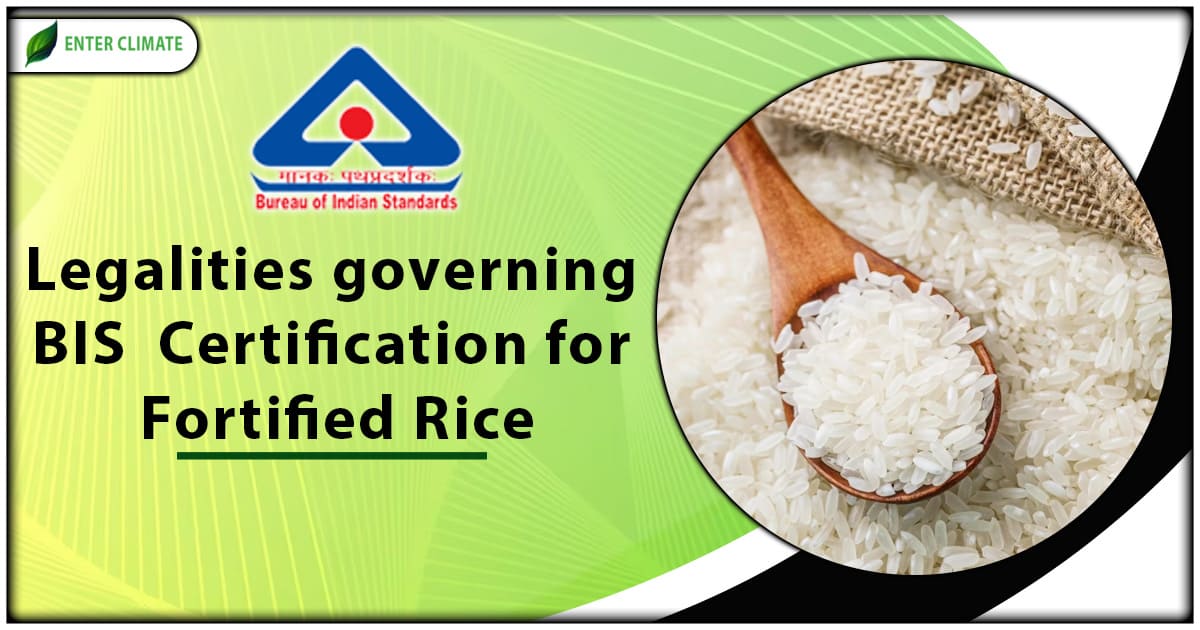Scope of Manufacturing Businesses Based on Jute Fibre
 30 Jun, 2023
30 Jun, 2023 
Jute, a natural vegetable fiber, is commonly found or grown. It is spun into strong threads and woven to create jute fabric, known as the “golden fiber” due to its shiny and soft texture. It is considered the strongest natural fiber on Earth. In India, jute bags and other jute products have been manufactured for commercial trading since the seventeenth century. However, the rise of plastic gradually dominated the jute market, replacing many jute products. Nevertheless, the disadvantages and dangers of plastic have become apparent, leading to a successful resurgence of various Businesses based on Jute fibre in the market. This can be attributed to increased awareness about using eco-friendly products and government initiatives promoting a greener lifestyle.
Growth of Businesses based on Jute fibre
The pollution caused by plastic bags has left manufacturers and consumers with three alternatives:
- Paper bags
- Jute bags
- Fabric bags made of cotton, denim, or canvas
Paper bags are delicate and require careful handling. They are prone to tearing when carrying heavy items and can become damp when transporting cool or frozen products. Fabric bags, while durable, are typically expensive. On the other hand, jute bags are strong, inexpensive, and reusable without any harmful effects. Originally used as sacking bags for agricultural produce, sand, fertilizers, and cement, jute bags now serve various purposes such as shopping bags, lunch bags, sling bags, purses, promotional gifts, travel bags, water bottle covers, school bags, and more.
To meet the demands of modern customers, jute bags now come with lamination or lining options like muslin, LDPE, wipe clean, and splash resistant materials to enhance their durability. Fashion designers have added a glamorous touch to jute bags through attractive prints, comfortable handles and straps, pockets, colours, shapes, and other features. Jute bags have transformed from simple and dull bags to fashionable accessories that can enhance one’s style. They cater to people with different tastes and serve various purposes.
Advantages of using Jute Bags
The advantages of Jute Bags in Businesses based on Jute fibre are as follows:
- Jute, being a natural material, is inherently part of the environment.
- Jute bags are environmentally friendly since they are biodegradable[1].
- Unlike single-use plastic bags, jute bags can be reused multiple times.
- They are versatile and suitable for a wide range of purposes, from carrying lightweight jewellery and gifts to transporting heavy agricultural products such as wheat and paddy.
- Jute bags are known for their strength, durability, lightweight nature, and affordability.
- They offer UV protection and can be safely used for storing food products.
- Jute bags possess anti-static properties.
- Travelers particularly appreciate the trendy printed and decorative designs available for jute bags.
- Jute bags have become a popular choice for brands as promotional or complimentary items, as they have a long lifespan and serve as a continuous reminder of the brand to the customer.
Training Institutes for Businesses based on Jute fibre
In India, the National Centre for Jute Diversification (NCJD) and the Jute Manufacturers Development Council (JMDC) provide training programs for jute bag production. These training programs include the Basic Training Program, Advance Training Program, and Advance Training cum Design Dissemination Program. Additionally, they offer technical demonstrations and facilitate Buyer-Seller Meets to support the jute industry.
Manufacturing process
In setting up Businesses based on Jute fibre, it is crucial to understand the market potential and trends. One approach is to consider becoming a wholesale dealer for a month to familiarize yourself with raw material suppliers, manufacturers, and potential customers. Doing so lets you gain insights into the fast-selling types of jute bags and keep an eye on upcoming trends. Once you have a good grasp of the market potential, you can establish your own production unit. Creating a comprehensive business plan that includes objectives, financial estimates, production timelines, staffing, location, and marketing strategies is essential. Registering a company name and commencing production will follow.
Here are the steps involved in jute bag making:
- Purchase woven jute fabric rolls from wholesalers or directly from manufacturers, with West Bengal being significant sources of jute fabric.
- Laminate the jute rolls if you intend to sell laminated jute bags before cutting the roll.
- Spread the jute fabric roll on a table and secure it.
- Cut the jute rolls to the desired size and shape.
- Print designs, logos, or text onto the jute roll pieces.
- Wash and dry the printed jute fabric pieces.
- Stitch the cut pieces of jute roll using a heavy-duty sewing machine.
- Attach handles, buckles, zips, etc.
- Pack the jute bags for marketing purposes.
The raw materials used in Businesses based on Jute fibre include jute fabric, dyes, printing gum, sewing thread (preferably nylon), chemicals and auxiliaries, handles, PVC buckles, packing materials, and labels. India and Bangladesh are the leading producers of jute fiber, with West Bengal accounting for 50% of India’s total jute production. You should source your raw materials from reputable and genuine jute mills.
When it comes to jute bag-making machines, they facilitate the bag-making process, saving time and effort. These machines vary in capacity, automation level, quality, technology, and functionality. There are even jute bag-making machines available for small businesses to operate from home, which can significantly benefit your jute bag home business. The cost of a jute bag-making machine will depend on the type of machine and the specific requirements of the jute bag-making industry.
Machinery Required for Jute Bag Manufacturing
High-end technology machinery is optional for jute bag manufacturing. The machinery required depends on the scale and type of bags being produced. For making printed jute bags, the following equipment is typically needed:
- Working table
- Lamination machine
- Printing table
- Screen printing machine
- Dye Paste Stirrer
- Water Drum, tubes, mugs, clips, etc.
- Cottage Steamer
- Electric fittings
- Scissors and measuring tape
- Cutting machine
- Heavy-duty sewing machine
- Regular sewing machine
- Nylon thread
- Lockstitch Machines
- Side Sealing Machine
Promotion of Businesses based on Jute Fibre
Promoting a jute bag making business in India is crucial for successful sales. Both offline and online promotion strategies can be effective. Offline promotion can be done through retail sales, while online promotion can utilize business websites and social media platforms. Targeting the local market is a good starting point in Businesses based on Jute fibre to attract immediate customers. It is also beneficial to establish connections with manufacturers of cement, sand, animal feed, fertilizers, pesticides, shopping malls, rice mills, textile manufacturers, and similar industries. Additionally, designer jute bags tend to have good sales through e-commerce websites.
License and Registration
Registration and License Requirements for Starting a Jute Bag Making Business:
- Register your Firm/Company with the Registrar of Companies (RoC): To legally start your business, you must register your firm or company with the appropriate government department. This can be done by creating a Limited Liability Partnership (LLP), One-Person Company (OPC), or private company registration.
- Obtain a GST Number: If you provide taxable services to your customers, you must apply for GST registration and open a current account with a bank.
- Obtain a Trade License from the Local Authority: To operate a jute bag making business, you need to obtain a No Objection Certificate (NOC) from the local authority in your state.
- Obtain an Import Export Code (IEC): If you plan to import or export jute products, you need to apply for IEC code registration from the relevant authority.
Conclusion
If jute products are stylish and useful, they can cater to a wider customer base. Focus on innovation and embrace your creativity. Consider exploring products that can be replaced with jute fabric and experiment with designs and colours. India and Bangladesh are significant producers of jute and jute bags, making them a recommended business idea due to their availability and affordability. It is advisable to consult experts for the licenses and registration of the Businesses based on Jute fibre to comply with all the regulations and start focusing on the core business.
FAQ
Yes, jute business is profitable and is a great decision to start.
Yes, jute bag-making business a profitable business as the usage of jute bags has increased at a huge rate over the last year.
Jute products are in high demand inside and outside India with export volume during the financial year 2022 being over 161 thousand metric tons.
As per the Indian Jute Mills Association (IJMA) statistics the jute industry was valued at Rs. 502.62 and Rs. 363.45 crore in 2021-22.
Yes, fabric bag making business are profitable because they are in high demand and therefore profitable for any corporation.
To start a jute industry business consider exploring to the products that can be replaced with jute fabric and experiment with designs and colours, set up the marketing strategy and comply with the regulations.
You can make a good profit margin in the jute bag business.
The profit margin of Jute business is around 40%and allows you to grow your business and manage costs easily.
For the manufacturing of jute, the process is known as retting which is used to remove the non-fibrous material from the stem and skin of the jute stalk.
The demands of jute products is internally as well as globally as it is biodegradable and eco-friendly.
Read our Article: How To Start A Biodegradable Plastic Bag Business?
Categories
Latest Post
Air pollution Dispersion Modeling
Natural Disaster Risk Assessment
Endangered Species Protection
Aquifer Recharge Project
Sustainable Sanitation Solutions














